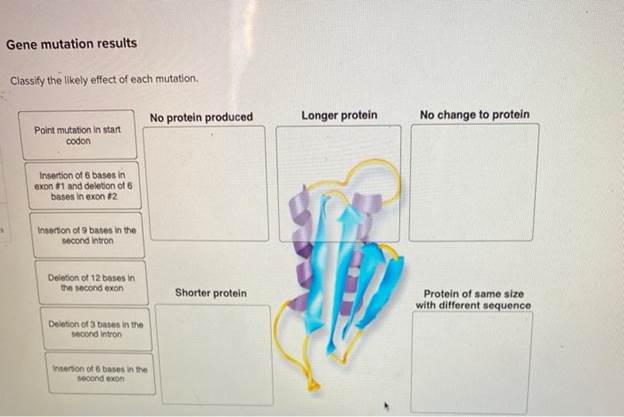In the realm of genetics, mutations are variances that occur in the DNA sequence of an organism. They can take place due to a variety of factors, such as environmental influences, errors in DNA replication, or even the organism’s own physiological processes. The cultural relativism perspective provides a unique lens through which we can evaluate the implications of these mutations on individuals and their societies. By asking ourselves how these genetic variations might be perceived in different cultural contexts, we can uncover layers of meaning that extend beyond the scientific implications. In this context, we must explore: How do the perceived effects of mutations shape societal values and individual identities?
The first step in this exploration is to classify the types of mutations that exist within the field of genetics. Geneticists typically classify mutations into three primary categories: point mutations, insertions and deletions, and large-scale mutations. Point mutations involve a change in a single nucleotide base. An insertion or deletion mutation alters the DNA sequence by adding or removing nucleotides, and large-scale mutations can encompass entire genes or segments of chromosomes.
Point mutations can yield varied effects based on their nature. They can be classified further into missense mutations, which result in the substitution of one amino acid for another in a protein, and nonsense mutations, which create a premature stop codon. This raises a playful question: In societies that celebrate diversity, would a missense mutation be viewed as an enhancement or a disadvantage? The answer is not straightforward, it’s contingent on cultural perceptions of diversity and individual worth.
In cultural contexts that emphasize collectivism and community welfare, a point mutation that confers a beneficial trait—such as resistance to disease—could be celebrated. Conversely, if a mutation results in an undesirable trait, such as increased susceptibility to certain conditions, it may stigmatize the individual, leading to negative social implications. Here, we see how cultural relativism mediates the interpretation of genetic variations, as the same mutation can either uplift or marginalize an individual depending on the cultural backdrop.
Insertions and deletions, on the other hand, often lead to frame-shift mutations, a change in the reading frame of the genetic code. These alterations usually produce far more severe consequences than point mutations, possibly resulting in completely nonfunctional proteins. How might these dramatic biogenetic transformations be perceived in varying cultural matrices? In a society that values physical prowess and resilience, a severe mutation—leading to impaired function—might be regarded with sympathy or despair. However, in a culture that emphasizes intellectual achievement, such a mutation could be overshadowed by the individual’s capacity for cognitive excellence.
This sets the stage for an intriguing discussion on large-scale mutations. This category includes duplications, inversions, and even translocations of chromosomes. Such aberrations can have profound implications not only for the individual but also for their progeny. From a cultural relativism standpoint, consider how a chromosomal mutation leading to a spontaneous new trait can be interpreted. In a culture steeped in mythology and folklore, a child displaying unusual characteristics due to a genetic mutation might be seen as divinely touched or possessed of special powers. Conversely, in more materialistic societies, the same mutation may lead to ethical dilemmas regarding genetic engineering and ‘playing God.’
Moreover, the intersection of genetics and cultural identity raises essential questions. Do we define ourselves by our genetic makeup or our cultural affiliations? Mutations can lead to unique phenotypes, creating a spectrum of diversity. Some societies may embrace individuals with distinct genetic variations as embodiments of cultural resilience, while others might feign ignorance to their plight, thus neglecting their potential contributions to societal richness.
Understanding the potential consequences of various mutations—whether beneficial, neutral, or detrimental—is essential not only in the scientific domain but also within societal discussions. This is particularly crucial as we advance into an era where genetic editing technologies, like CRISPR, empower humanity to modify our DNA. There exists an inherent ethical challenge: how will these technologies affect societal norms and individual identities? And more importantly, how will different cultures react to prescribed genetic alterations? Will they embrace or resist such innovations?
In synthesizing the implications of mutations through the lens of cultural relativism, we must also engage with the concept of genetic determinism. This philosophical stance suggests that genetics fundamentally determines traits, behaviors, or even destinies. However, many societies have strong counter-narratives emphasizing nurture and environmental influences. Hence, the debate around mutations entwines with deeper questions about free will and moral responsibility, particularly as technological advancements challenge our understandings of nature versus nurture.
In conclusion, the classification of genetic mutations and their effects cannot be divorced from cultural contexts. Each type of mutation presents an opportunity for diverse interpretations shaped by societal values and beliefs. This exploration reveals an intricate tapestry of human experience, colored by our interpretations of genetic variations. As mutations continue to influence our species’ trajectory, the dialogue between genetics and culture will remain essential. This dynamic interplay poses both risks and opportunities for humanity, reminding us of the complex interrelations that define our existence. Ultimately, the challenge lies in navigating these uncharted territories with an understanding that values diversity, encourages empathy, and fosters a deeper connection to the shared human experience.
